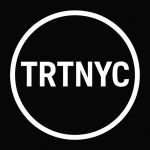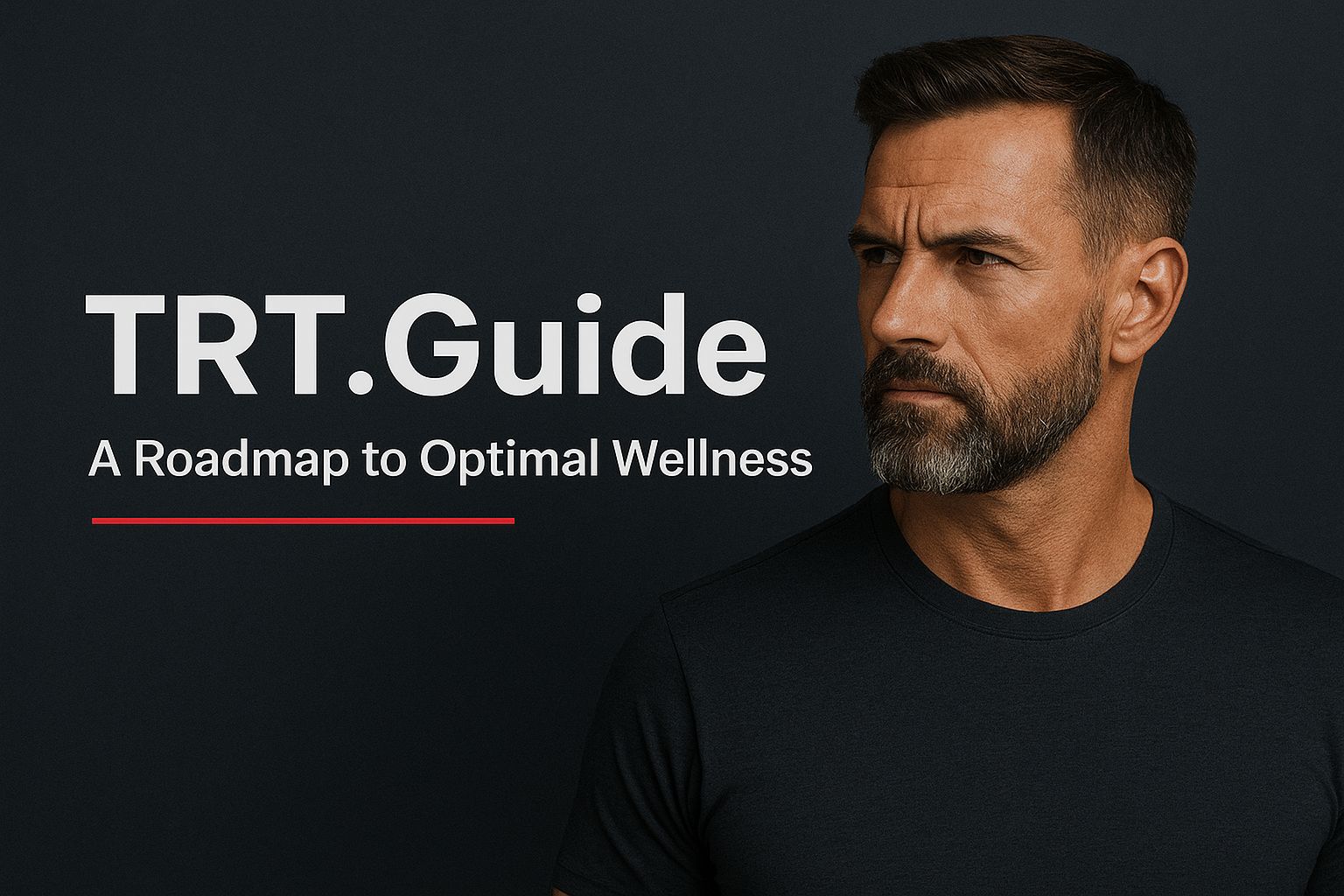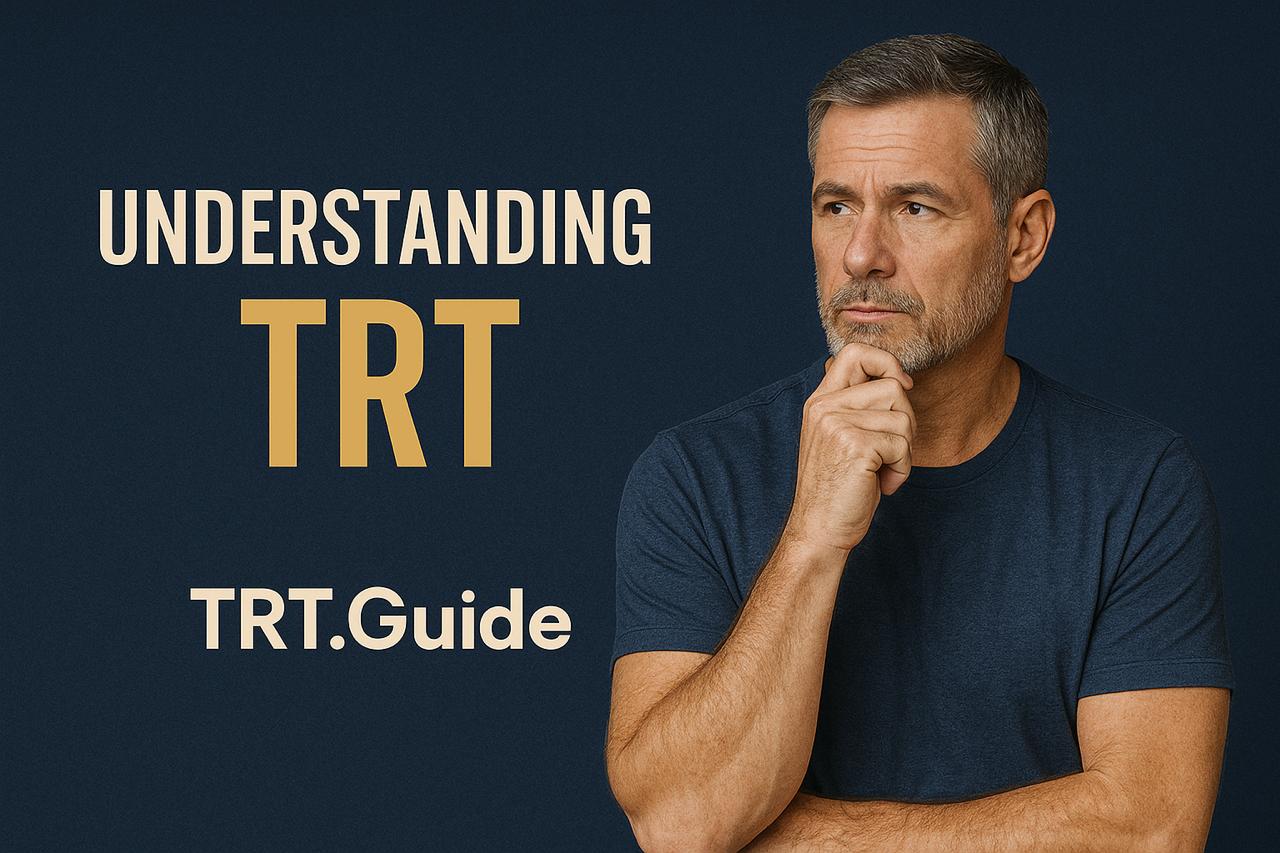When it comes to optimizing your health and vitality, understanding the differences between HGH and testosterone therapy is crucial. Both hormones play vital roles in your body, influencing everything from muscle growth to mood regulation. As you age, your natural levels of these hormones decline, leading many to explore therapeutic options that promise rejuvenation and enhanced well-being.
HGH, or human growth hormone, is often touted for its potential to improve body composition and energy levels, while testosterone therapy focuses on boosting libido and muscle mass. With so much information available, navigating these therapies can be overwhelming. In this article, you’ll discover the distinct benefits and drawbacks of each option, helping you make an informed decision tailored to your health goals.
Overview of HGH and Testosterone Therapy
Human growth hormone (HGH) and testosterone therapy serve distinct purposes in health and wellness. HGH promotes growth, cell regeneration, and overall body composition improvement. As natural HGH levels decline with age, many pursue HGH therapy for benefits like increased muscle mass, enhanced energy levels, and better recovery from exercise.
Testosterone plays a crucial role in male and female hormonal balance. Testosterone therapy addresses deficiencies that can lead to low libido, decreased muscle strength, and fatigue. Many choose testosterone therapy to regain vitality, enhance libido, and support muscle mass retention.
| Hormone | Benefits | Common Uses | Potential Risks |
|---|---|---|---|
| HGH | Improves body composition, boosts energy | Anti-aging, muscle mass enhancement | Joint pain, insulin resistance |
| Testosterone | Increases libido, enhances muscle mass | Hormone replacement, low testosterone treatment | Sleep apnea, acne, mood swings |
Both therapies require careful consideration of individual health goals and medical history. Consulting with healthcare providers ensures tailored approaches for optimal outcomes. Monitoring hormone levels prevents complications and maximizes benefits.
Adopting either HGH or testosterone therapy can significantly impact health and quality of life. It’s essential to evaluate personal health needs and choose the most appropriate therapy. Balancing the benefits and risks can lead to informed decisions that enhance overall wellness.
Benefits of HGH Therapy
Human Growth Hormone (HGH) therapy provides a wide range of benefits that contribute to improved physical, mental, and emotional well-being. This form of therapy is especially helpful for individuals experiencing age-related HGH decline or certain medical conditions. Below are some of the most notable advantages:
Muscle Growth and Recovery
HGH therapy promotes increased muscle mass and strength. It stimulates protein synthesis, contributing to muscle growth and allowing for quicker recovery after intense workouts. Enhanced muscle recovery reduces soreness and fatigue, enabling you to train harder and more frequently. Studies indicate that individuals receiving HGH therapy experience a noticeable improvement in their exercise performance and endurance. Furthermore, HGH can help regenerate muscle tissue, making it beneficial for those recovering from injuries. By optimizing recovery times and supporting muscle development, HGH therapy plays a vital role in enhancing athletic performance.
Anti-Aging Effects
HGH therapy exhibits significant anti-aging effects, helping to counteract age-related physical decline. As HGH levels drop with age, signs such as reduced skin elasticity, increased body fat, and decreased energy levels become prominent. HGH therapy may improve skin texture and thickness, providing a more youthful appearance. Additionally, it aids in the reduction of body fat while supporting lean muscle mass, contributing to a healthier body composition. Many users report elevated energy levels and enhanced mood, which can improve overall quality of life. With its potential to improve various markers of aging, HGH therapy often appeals to those seeking to maintain vitality in their later years.
Benefits of Testosterone Therapy
Testosterone & therapy provides a wide array of health advantages, particularly for men suffering from low testosterone levels, a condition known as hypogonadism. As testosterone is a key hormone involved in many bodily functions, restoring its balance can lead to significant improvements in physical, mental, and emotional health. Below are some of the most impactful benefits of testosterone therapy:
Increased Energy and Vitality
Testosterone therapy boosts energy levels, countering fatigue and lethargy commonly associated with low testosterone. Individuals often report enhanced daily functioning and an overall sense of vitality. Research indicates that men undergoing testosterone replacement therapy typically see improvements in energy and physical endurance, which facilitates better performance in daily activities and workouts. Increased energy can lead to higher motivation levels, fostering a more active lifestyle.
Enhanced Libido and Mood
Testosterone therapy plays a crucial role in enhancing libido in men experiencing diminished sexual desire due to low hormone levels. This therapy restores testosterone levels, often leading to improvements in sexual function and satisfaction. Additionally, many individuals notice positive changes in their mood, experiencing reductions in anxiety and depression. Studies show a correlation between testosterone levels and mood regulation, highlighting that optimizing testosterone can lead to an improved overall quality of life. Elevated testosterone may result in increased confidence and a stronger emotional state.
Key Differences Between HGH and Testosterone
Human Growth Hormone (HGH) and testosterone are both critical hormones that influence numerous aspects of health, development, and aging. However, they serve distinct roles within the body and impact health in different ways. Understanding the key differences between HGH and testosterone is essential when considering hormone replacement therapies or evaluating symptoms related to hormonal imbalances.
Mechanism of Action
HGH stimulates growth and cell regeneration through specific receptors in the liver and other tissues. It promotes protein synthesis, enhances fat breakdown, and increases muscle mass. HGH also influences insulin-like growth factor 1 (IGF-1), which mediates many of its effects, including muscle regeneration and fat metabolism.
Testosterone affects multiple systems, primarily through androgen receptors in various tissues. It enhances muscle mass, promotes red blood cell production, and supports bone density. Testosterone also influences sexual function, mood, and overall energy levels. Both hormones help optimize physical performance and vitality but act through different biological pathways.
Side Effects and Risks
HGH therapy can lead to side effects such as joint pain, carpal tunnel syndrome, and insulin resistance, particularly with excessive dosages. Monitoring levels can mitigate these risks. HGH isn’t approved for anti-aging purposes, and misuse can lead to serious health complications.
Testosterone therapy may cause side effects like acne, hair loss, sleep apnea, and mood changes. Elevated estrogen levels can lead to breast tissue growth in men. Regular monitoring of blood counts and hormone levels is essential to manage these risks effectively. Both therapies require careful oversight from healthcare providers to ensure safety and effectiveness.
Choosing the Right Therapy
Selecting the appropriate therapy requires careful evaluation of your individual health needs. Both HGH and testosterone therapy offer unique benefits and potential risks, making informed decision-making essential.
Consultation with Healthcare Professionals
Consultation with healthcare professionals plays a crucial role in determining the right therapy. Specialists can conduct comprehensive evaluations, including blood tests and health assessments, to identify hormone deficiencies. They can also consider your medical history and lifestyle factors to provide tailored recommendations. Engaging with healthcare providers ensures that you receive guidance on the most suitable treatment options. Regular follow-ups allow for ongoing monitoring of hormone levels, adjustment of dosages, and management of any side effects that may arise during therapy.
Factors to Consider
Factors to consider include age, health status, and specific symptoms. Age influences natural hormone levels; older individuals may require more thorough assessments. Your overall health, including any chronic conditions, can affect treatment outcomes. Additionally, consider symptoms like fatigue, weight changes, and libido issues. Discussing these factors with your healthcare provider helps clarify your goals, allowing for a more informed and targeted approach to therapy. Budget for the cost and insurance coverage of treatments as well, as these can vary significantly.
Conclusion
Choosing between HGH and testosterone therapy isn’t just about the hormones themselves. It’s about understanding your unique health needs and goals. Both therapies offer distinct benefits that can significantly enhance your quality of life.
As you consider your options remember the importance of consulting with healthcare professionals. They can guide you through the complexities of hormone therapy ensuring you make informed decisions tailored to your individual circumstances.
Monitoring your hormone levels is essential for maximizing benefits and minimizing risks. By taking a proactive approach you’re setting the foundation for a healthier and more vibrant future.
Ready to Reclaim Your Vitality?
Choosing between HGH and testosterone therapy is a personal journey—one that starts with understanding your body and your health goals. Whether you’re looking to boost your energy, enhance muscle mass, improve mood, or slow the signs of aging, the right hormone therapy can make a powerful difference.
Don’t navigate this alone. Connect with a licensed healthcare provider today to discuss your symptoms, explore your options, and receive a personalized hormone optimization plan tailored just for you. Your path to better health, renewed energy, and lasting vitality starts with one step.
Schedule your consultation now and take control of your wellness journey.
Frequently Asked Questions
What is the difference between HGH and testosterone therapy?
HGH (human growth hormone) primarily stimulates growth and cell regeneration, enhancing body composition and energy levels. In contrast, testosterone therapy focuses on restoring male hormone levels to improve libido, muscle strength, and alleviate fatigue. While both therapies support vitality, they target different aspects of health.
What are the benefits of HGH therapy?
HGH therapy can improve body composition by increasing muscle mass, boosting energy levels, and enhancing recovery from exercise. It also has anti-aging effects, such as improved skin texture and reduced body fat, making it appealing for those wishing to maintain vitality as they age.
What advantages does testosterone therapy offer?
Testosterone therapy can significantly enhance energy levels, counter fatigue, and improve libido. It also boosts mood and emotional well-being, promoting a more active lifestyle. Many individuals report increased confidence and a better overall quality of life after undergoing testosterone therapy.
Are there risks associated with HGH and testosterone therapy?
Yes, both therapies carry potential risks. HGH can lead to joint pain, insulin resistance, and other issues, particularly with high doses. Testosterone therapy may cause acne, hair loss, mood swings, and, in some cases, sleep apnea. Regular monitoring is essential for both therapies to ensure safety.
Who should consider HGH or testosterone therapy?
Individuals experiencing symptoms related to hormone deficiencies, such as low energy, decreased libido, and muscle weakness, may benefit from these therapies. Consultation with a healthcare professional is crucial for evaluating individual health needs and determining the appropriate treatment based on specific symptoms.
How important is monitoring hormone levels during therapy?
Monitoring hormone levels is critical to maximizing benefits and preventing complications from both HGH and testosterone therapy. Regular evaluations allow healthcare providers to adjust dosages and minimize the risk of adverse effects, ensuring a safe and effective treatment plan tailored to individual needs.






